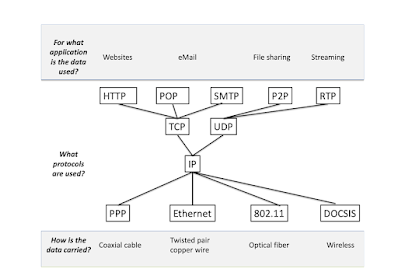The internet in 2021: Unstoppable economic force or the root cause of most/all evil?
Answer: Yes.
To both.
Because, not unlike your relationship status on Facebook back in the day 'it's complicated'.
And it's been on a mind a lot lately, and when I say lately, I mean the past year, as my task was to work on a project that estimated the value of the internet to the US economy. Daunting, yes, but this was my fourth time on the gig, so I knew what I was getting myself into. Even so, these projects always come with new brain-bending challenges, as these miscellaneous notes of mine suggest.
So...what is the value of the internet to the US economy? First, the TL;DR answer: 12% of GDP, or $2.45 trillion. The 162-page version of the answer can be accessed here, along with breakdowns of employment by US congressional district. Yes, this project goes hard.And what's the big picture here? For starters, you're better off looking for a tech job in Seattle or Boston than, say, Montana or North Dakota. That's not too big of a surprise. But what is interesting is that the internet economy now accounts for 12% of GDP. That's up from the 2% estimated in the 2008 report, 4% in 2012, and 6% in the 2016 analysis. And when compared to the economy as a whole, the growth rate of the internet economy is 7 times that of the overall economy.
So how did we get here?
The digitization, automation, and networking of previously analog, standalone processes kind of changes everything. Simply put, the internet is getting woven into the fabric of more industries and activities, more and more.
And then there's the iceberg issue. Which is that the part of the internet you see and know is just the tip of the iceberg. There are of course all those underlying protocols and technologies that you don't have to know about or think about, but without them, no Netflix, no comparing airfares on your iPad.
Part of the rapid rate of growth is technological capabilities, part of this is consumer expectation, part of this is the availability of capital for startups. When companies like Dropbox or Slack or Square start to take hold, they really start to take hold. And exponential growth is where venture capital dollars want to be. Yes, they 'lose' 9 times out of 10, but when they get the win it more than erases than the losses of the other 9.
It started with 'shared' music files in the late 90s (and I fully realize that sharing is a euphemism for pirated which became a euphemism for distribution and then became a euphemism for promotion and eventually found its way to the all-you-can-eat streaming of Spotify and SoundCloud and YouTube et al). As the tech ecosystem has evolved some are 'free', thanks to ads, some are free thanks to business models like freemium, some offer an uninterrupted, ad-free experience in exchange for a monthly subscription, and some are both.
Market evolution = more choices, more tiers of services, and new business models, many of which we don't even think about. I mean, how often do you think about how the people on the other end, wherever that is, are getting paid for all the stuff you do online without paying with out of pocket dollars. Probably not that much.
As your elders told you, there's no free lunch. The truth of the matter is if you're not paying with dollars then you're paying with data. Or, you're free riding, to use another term from the dictionary of economics. Except on the internet free riding has been turned into a new kind of business model. Best example: Those up to 40 minute Zooms you're not paying anything for? It's the people who pay for the premium features that are making those possible.
When considering the runaway growth of the internet economy it's also worth thinking about all the things we do online now without even thinking about them. They're just there. As if they've always been there. Dating by swipe, banking by phone, language learning by app, ride ordering by Uber and Lyft, pushing a few virtual buttons and then magically receiving groceries, furniture, cat food, and clothes. Earlier this year crypto became the world's 5th most circulated currency. The internet is increasingly everywhere. Heck it's even in vending machines.
 |
The full report can be accessed here. |




No comments:
Post a Comment